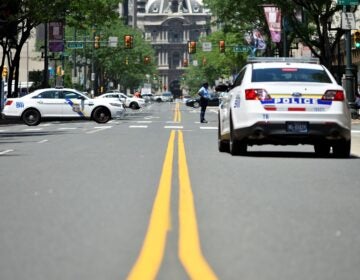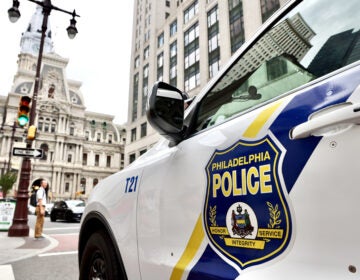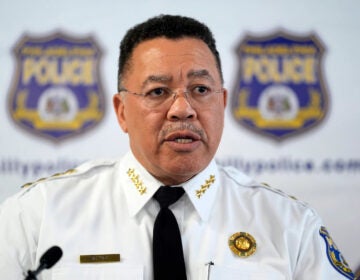Malcolm Jenkins says candidates to run Philly police ‘are already hiding’
Philadelphia’s mayor is slated to name a new leader before year’s end. Some, like the Eagles safety, worry the process is taking place behind closed doors.
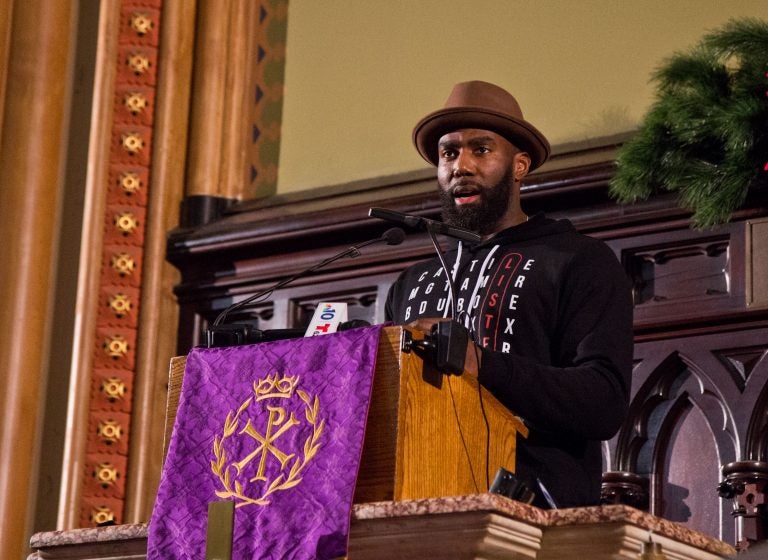
Malcolm Jenkins, safety on the Philadelphia Eagles, speaks at a police reform rally at the Arch Street United Methodist Church. (Kimberly Paynter/WHYY)
Philadelphia Mayor Jim Kenney is slated to name a new police commissioner before the end of the year, and some local activists, including Eagles safety Malcolm Jenkins, worry the process is taking place behind closed doors.
During a police accountability rally just steps from City Hall at Arch Street United Methodist Church, Jenkins pointed out how Columbus, Ohio, and Dallas have released the names of the candidates being considered to lead their police forces.
“How can the community trust that our demands will be met when the candidates are already hiding from us?” Jenkins asked the crowd.
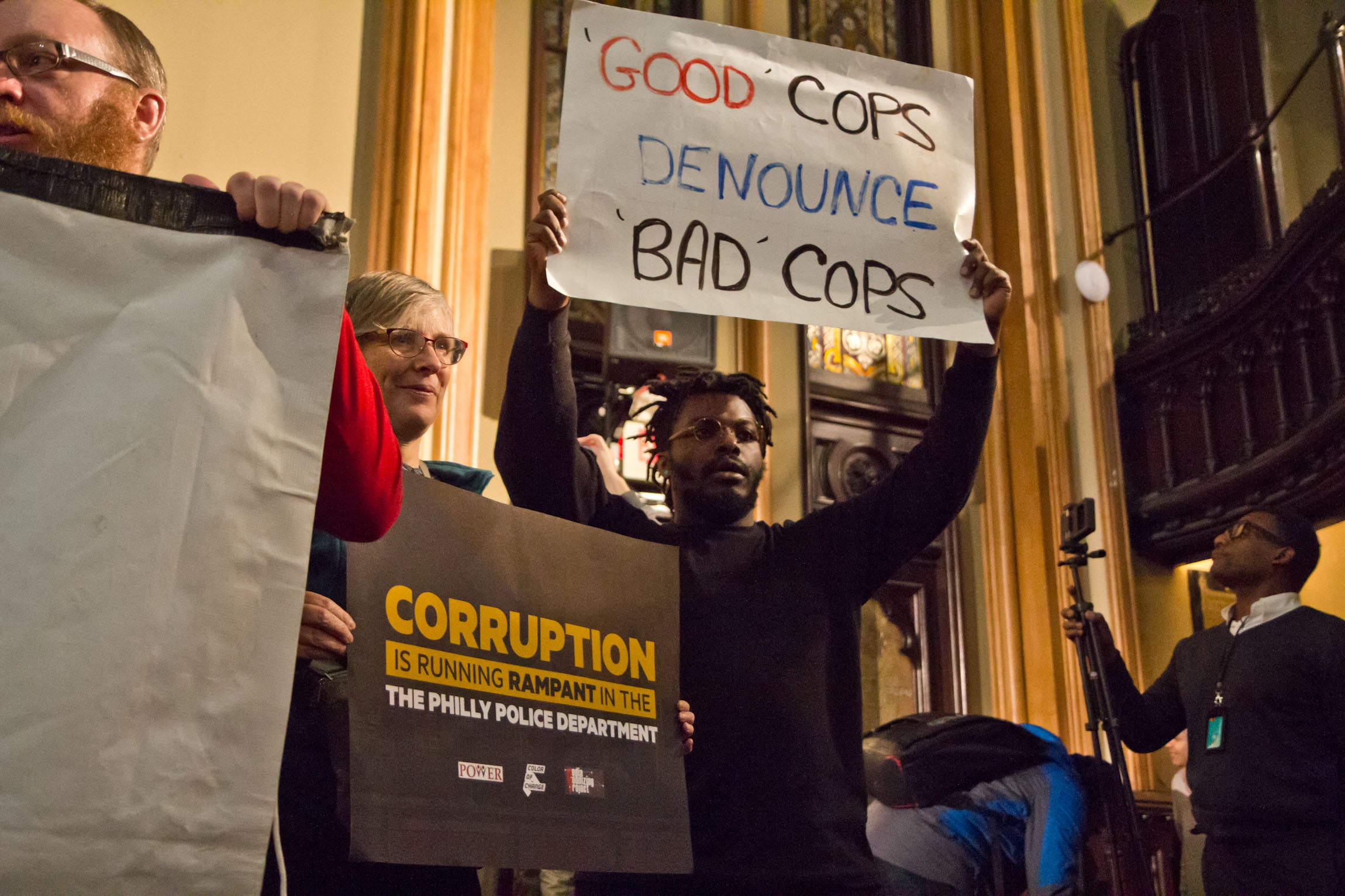
But Mike Dunn, a spokesman for the mayor’s office, said in an email that Kenney has asked the public to weigh in on what they wanted in new police commissioner.
Over a month, more than 4,000 people responded, according to Dunn, and the feedback was used to inform the questions the city asked internal and external candidates.
The city Managing Director’s Office is working with the Police Executive Research Forum, a police research and policy organization that helps law enforcement agencies.
Dunn said releasing the names of candidates would be unfair to those seeking the job. Such a public process “would likely scare away a good number of potential candidates, who would not want to endanger their current position,” he said.
Still, those looking to hold police accountable have significant demands for change after decades of what residents call over-policing of communities of color and a year of scandals for the force.
Hannah Jane Sassaman, policy director of the Media Mobilizing Project, said those changes aren’t possible without a proper leader.
“Unless we see some of the major candidates, learn how the hiring process is going to investigate their commitment and their record of being flexible and accountable to facts about overpolicing and police abuse, then we’re not going to get someone,” she said.
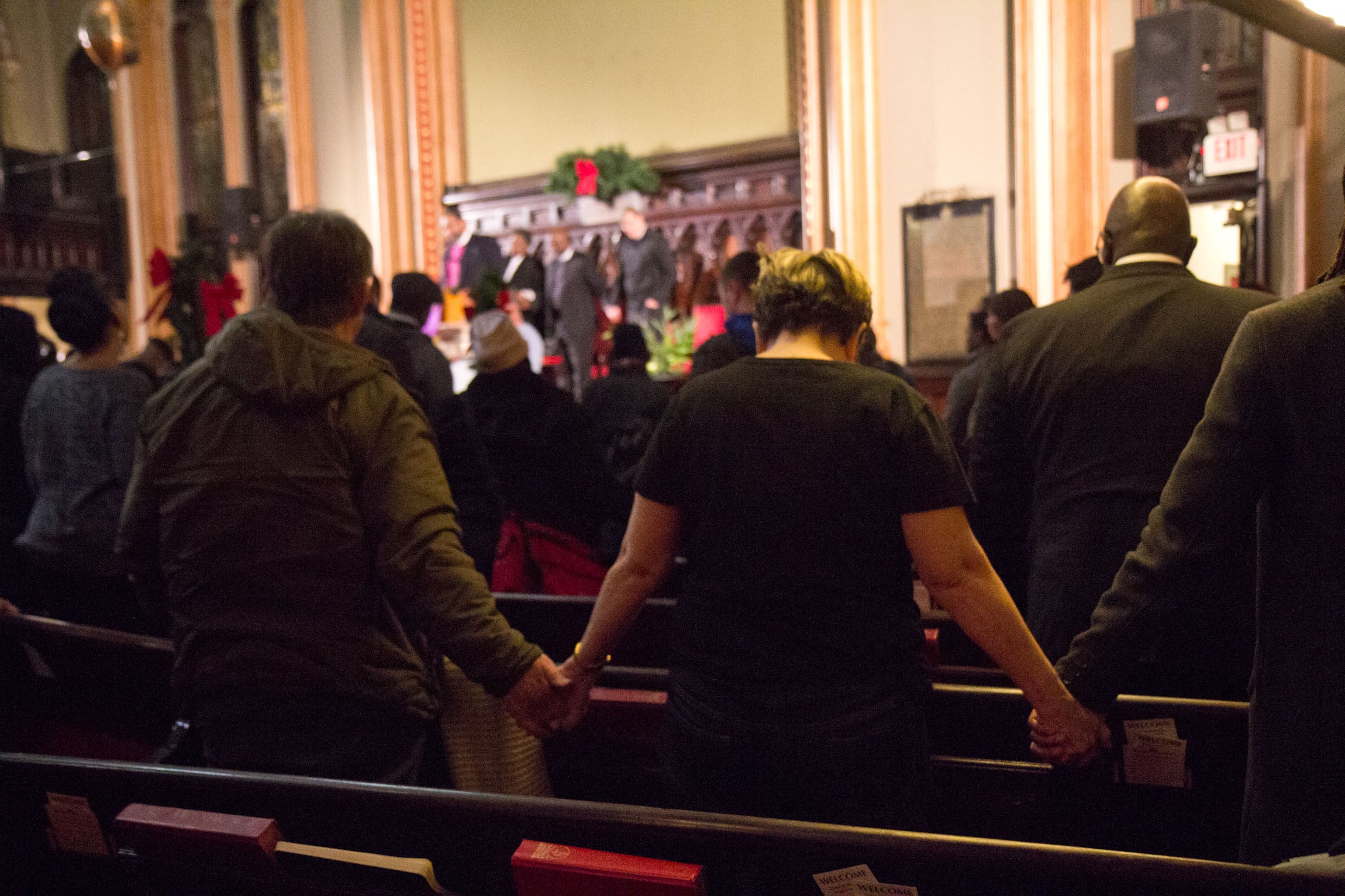
A police contract with public input
Before the police accountability event started, several activists presented their demands for a say in the upcoming police contract in a petition, signed by 1,776 people, to the mayor’s office at City Hall.
The interfaith group POWER and Media Mobilizing Project were two of the more than two dozen organizations represented in the petition calling for change through the next police labor contract, up for negotiation in the new year. The Kenney administration will have to hammer out the contract with Fraternal Order of Police Lodge 5.
The groups, which included Philly Neighborhood Networks, the Coalition 4 Black Lives, and the ACLU of Pennsylvania, were among the groups at the Monday night rally.
The petition called for the police contract to change the way arbitration works when police officers violate the Philadelphia Police Department’s disciplinary code.
According to a Philadelphia Inquirer investigation, the arbitration process reversed firings or other disciplinary measures for more than 100 officers in the past decade.
“What we’re doing here has been done, literally every decade,” said Chenjerai Kumanyika of the 215 People’s Alliance, who is a city resident as well as a professor at Rutgers University. “We need to totally transform the institution.”
Just this year, the department had to place 72 officers on desk duty as Internal Affairs investigated some potentially racist and misogynistic social media posts. Ultimately, 15 officers were forced out, with others disciplined without losing their jobs.
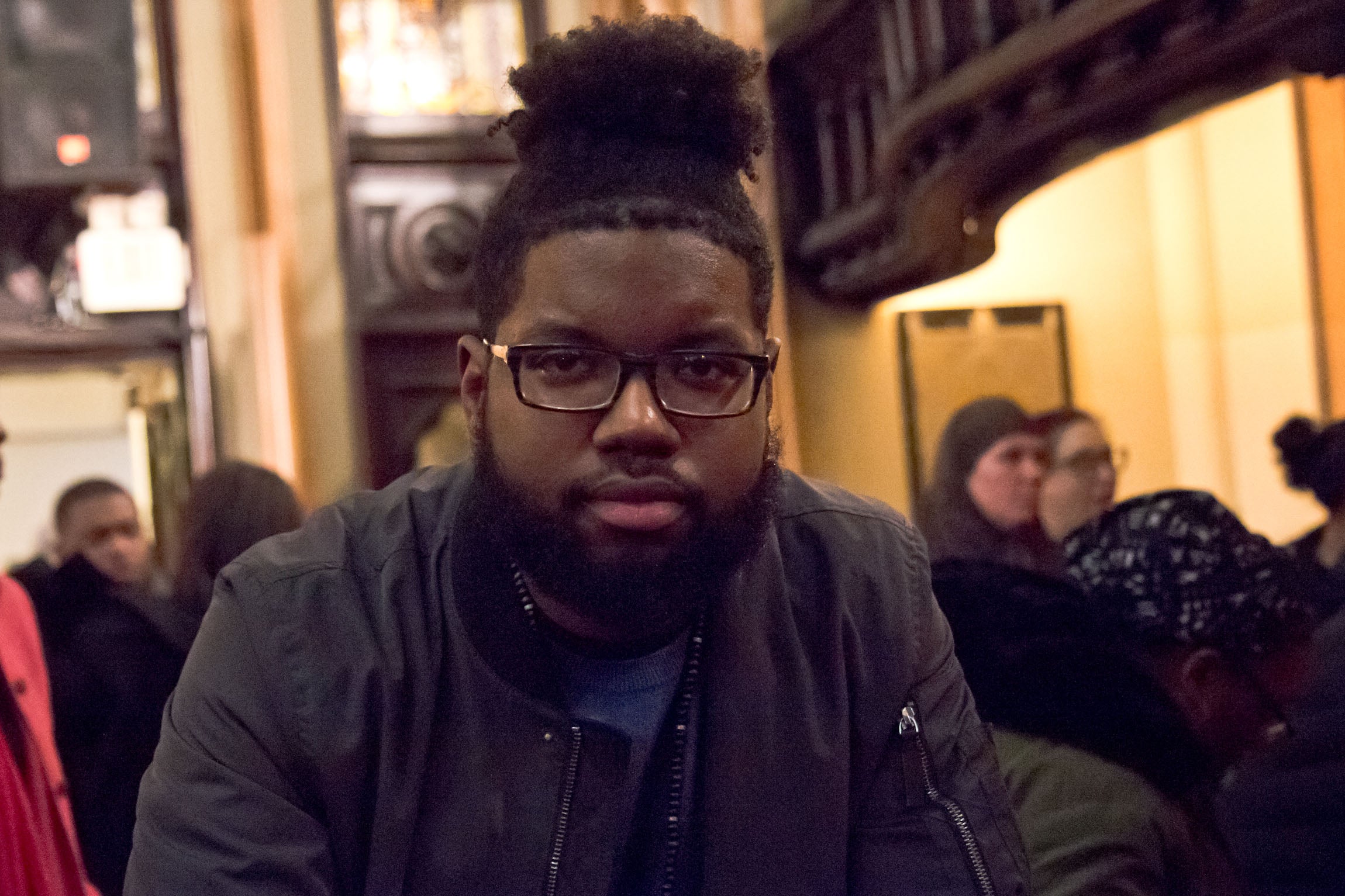
Residents also had fresh on their minds investigative reports by the Inquirer that described how officers such as Chief Inspector Carl Holmes rose through police ranks despite accusations of assaulting female officers. He was arrested in November on charges of assaulting three officers.
Young Black men like Jamel Workman, owner of Contenders Barbershop in West Philadelphia, shared how they feel racially profiled by officers and often subject to illegal searches.
“Whether you’re walking, maybe you fit the description of some suspect, maybe you’re dressed a certain way — Timberland boots and hoodies is kinda common in my area — if that’s one of the things that they call reasonable suspicion, then probably about 85% of my community looks suspicious,” said Workman.
Workman said he wanted the next police contract to put a stop to the practice called “stop and frisk.” That’s when officers stop, question and pat down a person on the street.
Dunn, the mayor’s spokesman, said there has been an 89% decrease in the number of unconstitutional pedestrian stops since Kenney took office — from 110,000 to about 11,000 last year.
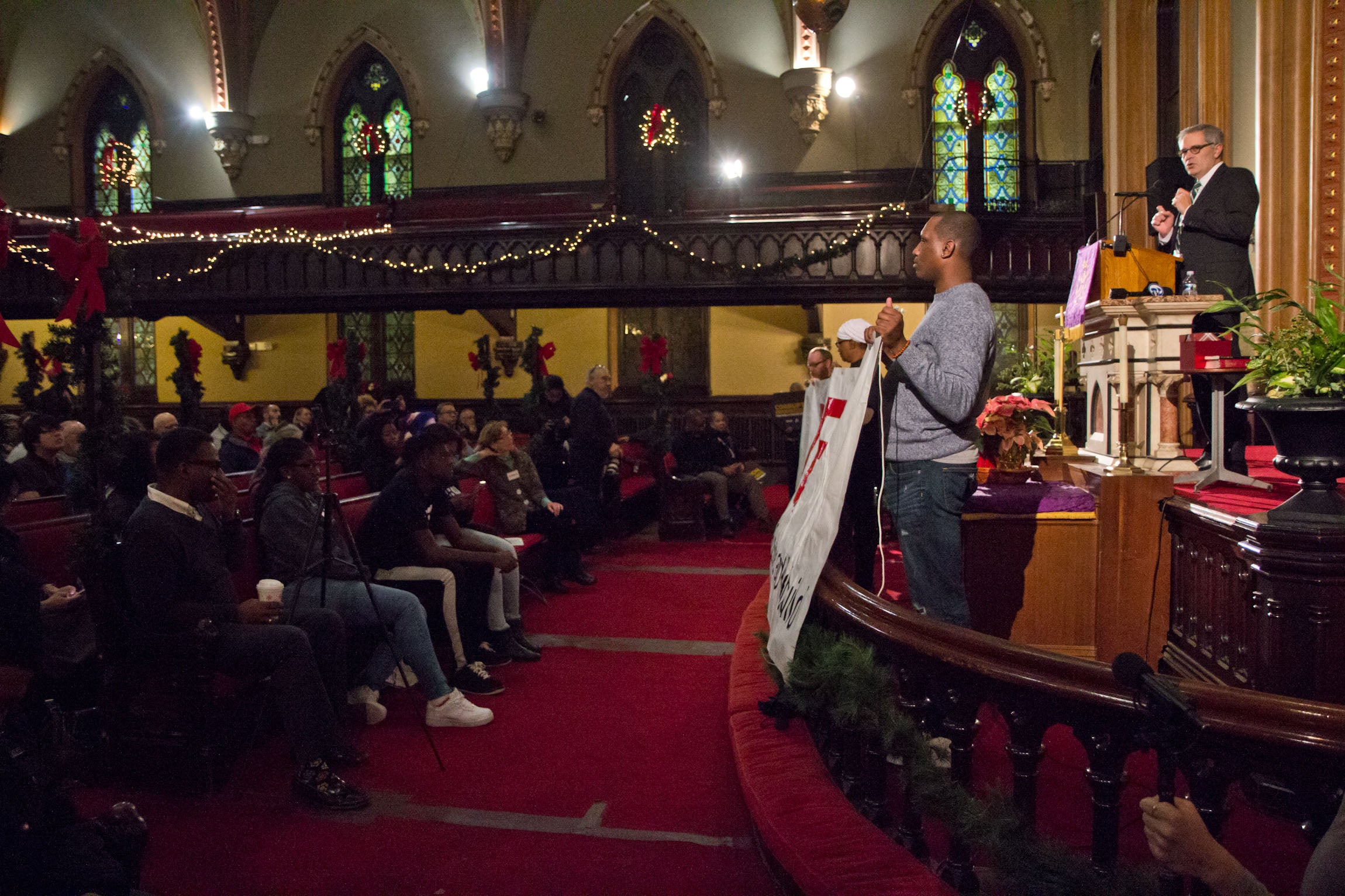
At least one person in the room was optimistic Kenney would make a good choice in naming the next commissioner.
“I’m going to stick my neck out here,” said District Attorney Larry Krasner, adding he doesn’t know who the next leader of the department will be. Still, he said, he believes local activism will influence the decision.
WHYY is your source for fact-based, in-depth journalism and information. As a nonprofit organization, we rely on financial support from readers like you. Please give today.


